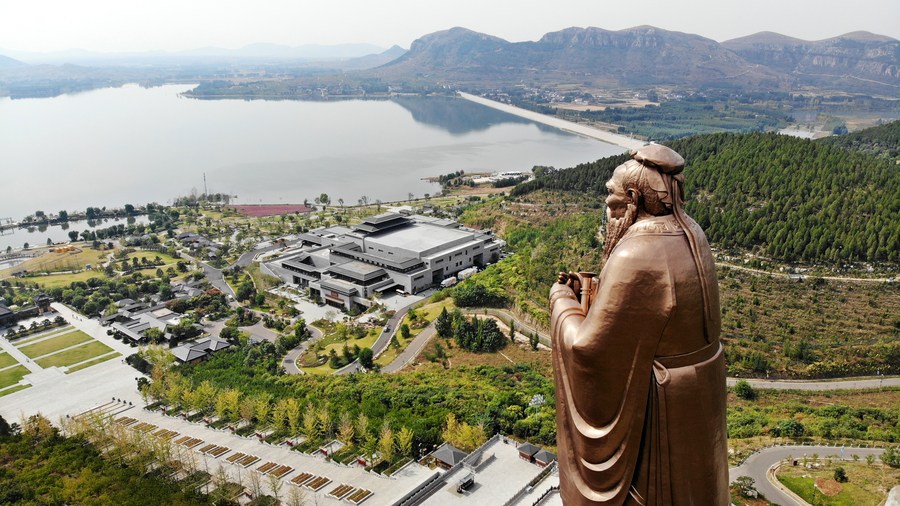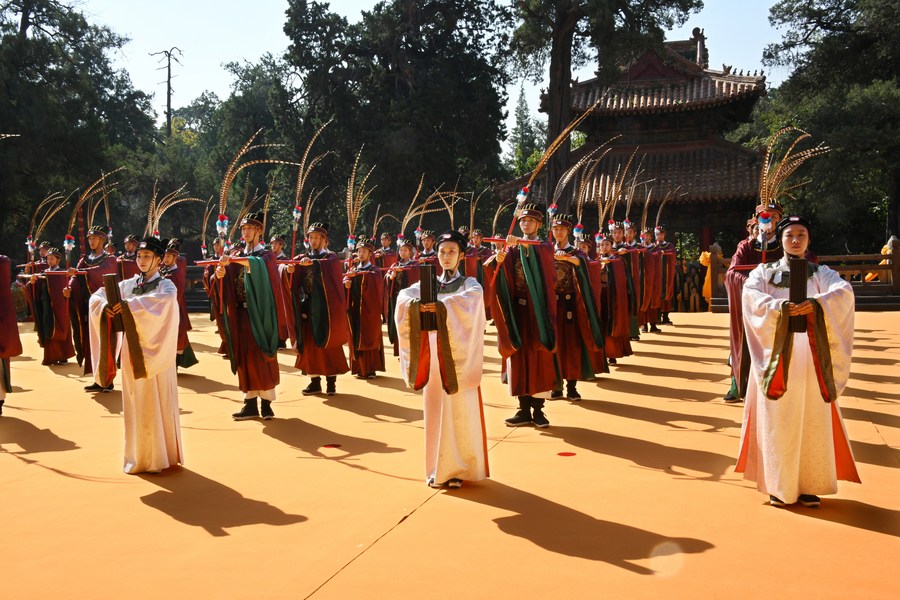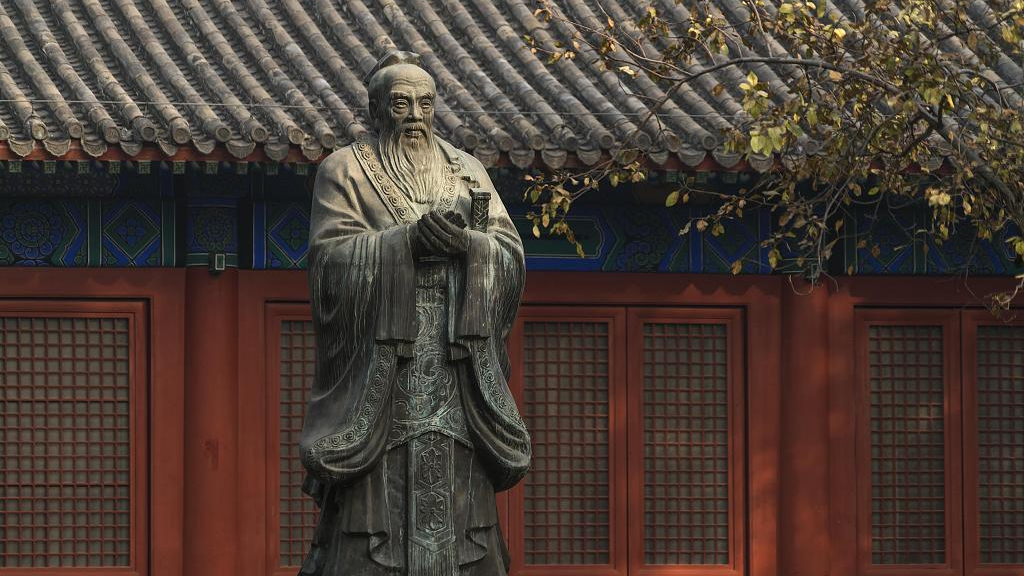
The site of 2022 China (Qufu) International Confucius Cultural Festival and the Eighth Nishan Forum on World Civilizations in Qufu, the birthplace of Confucius, in east China's Shandong Province, September 27, 2022. /Xinhua
The site of 2022 China (Qufu) International Confucius Cultural Festival and the Eighth Nishan Forum on World Civilizations in Qufu, the birthplace of Confucius, in east China's Shandong Province, September 27, 2022. /Xinhua
Confucius (551-479 B.C.), a revered Chinese philosopher, has commanded profound respect from Chinese emperors for centuries.
Notably, this reverence for Confucius extended even more prominently to rulers hailing from Chinese ethnic minorities, underscoring the enduring influence of Confucian teachings across diverse cultures.
This can be found in the fact that nearly half of the existing inscriptions in Qufu in east China's Shandong Province, the birthplace of Confucianism, are from periods under the rule of minority groups.
"The activities honoring Confucius by emperors in ancient China were very common, and those from ethnic minority groups showed particular respect for the philosopher," said Gan Chunsong, a professor of philosophy and vice director of Confucius Research Institute at Peking University.
Confucianism is characterized by its rich ideological resources and its status as a prominent symbol of civilization, Gan said during an interview with Daozhonghua, a WeChat account run by the National Ethnic Affairs Commission.
"Throughout history, minority regimes have often emphasized their cultural identity by showing profound respect for Confucius and embracing Confucianism."

A ceremony marking the 2,573rd anniversary of Confucius' birth is held at Confucius Temple in Qufu, Shandong Province, September 28, 2022. /Xinhua
A ceremony marking the 2,573rd anniversary of Confucius' birth is held at Confucius Temple in Qufu, Shandong Province, September 28, 2022. /Xinhua
Ideologies shared by both ruling class and common people
Ethnic minorities throughout China often have a strong admiration for the culture of the Han nationality, despite being perceived as less advanced than the Central Plains dynasty in terms of civilization, according to Zhong Weimin, a professor at the Department of History at Tsinghua University.
"They take great pride in learning and embracing Han culture."
Also, another important reason for them to respect Confucius is to gain a reasonable existence and be more easily recognized by the Han people, Zhong, who is also the editor-in-chief of the journal International Studies on Confucianism, told CGTN.
Confucianism was widely embraced by rulers of numerous ancient dynasties. More importantly, its principles, like respecting the elderly and maintaining harmonious relationships between generations, resonated with the common people.
Also, Confucianism encompasses ethical values such as loyalty, filial piety and righteousness. Moreover, it offers guidance for the ruling class on governing a nation effectively.
Take Liu Bang (256-195 B.C.), who was known as Emperor Gaozu of the Han Dynasty, as an example. He established the Han Dynasty (206 B.C.-AD 220) that lasted for over 400 years, the longest dynasty in the history of China.
Initially, he unified most of China under his control through warfare. Over time, he came to understand the importance of benevolence and the role of etiquette in establishing and maintaining social order.
Under the influence of Confucianism, he gradually realized that rulers could attain societal harmony without resorting to the use of force.
Later, during his visit to Qufu, he offered sacrifices at the level of Tailao (which consists of pig, sheep and ox) to Confucius to show respect. That is the historical roots of the tradition of respecting Confucianism, Gan noted.
During his reign, Liu Bang implemented various measures to benefit society, including reducing taxes and labor obligations. He promoted Confucianism while quelling revolts led by non-Liu vassal lords.

A statue of Confucius at the Imperial Academy, or Guozijian, in Beijing, China. /CFP
A statue of Confucius at the Imperial Academy, or Guozijian, in Beijing, China. /CFP
Role of Confucianism in Chinese history
In ancient China, emperors and scholars served as role models for people. So their respect for Confucianism helped to promote the widespread embrace of Confucian ethics, according to Gan.
This made Confucianism, which imparts the essential virtues of humanity and emphasizes the constant pursuit of personal growth and self-improvement, became the most common cultural identity in Chinese society.
The political ideals that emphasized "benevolence" and "ideal of great harmony" all constituted the common values and beliefs of the Chinese people, he said.
The practice of respecting and honoring Confucius not only promotes national integration and cultural exchange, but also serves as a key driving force behind the continuous development of Chinese civilization.
Confucianism has played a cohesive role in Chinese history, as it has significantly contributed to national integration and unification throughout Chinese history, Zhong noted.